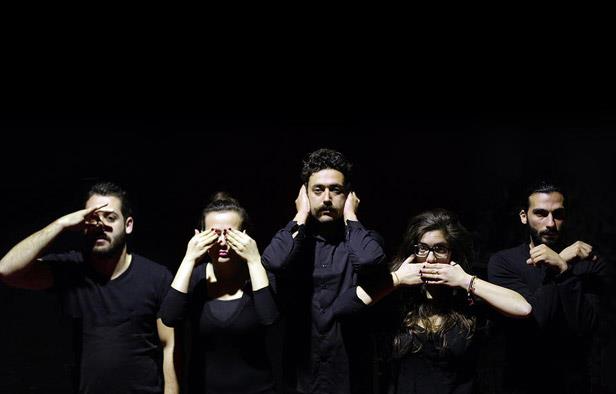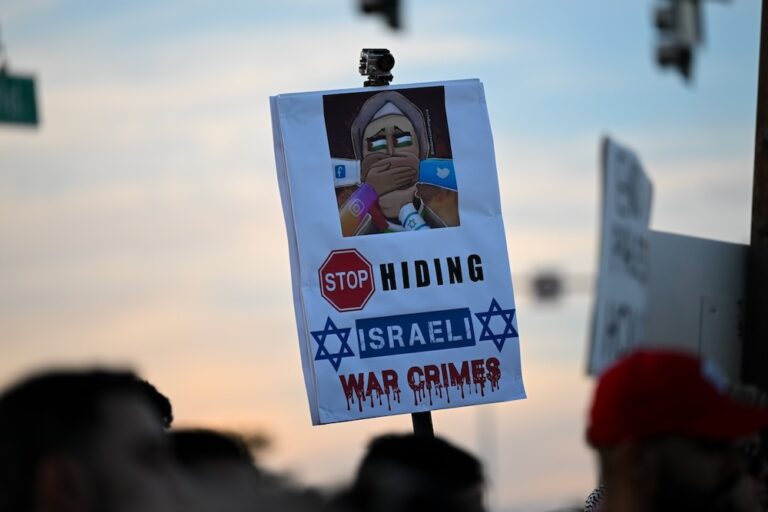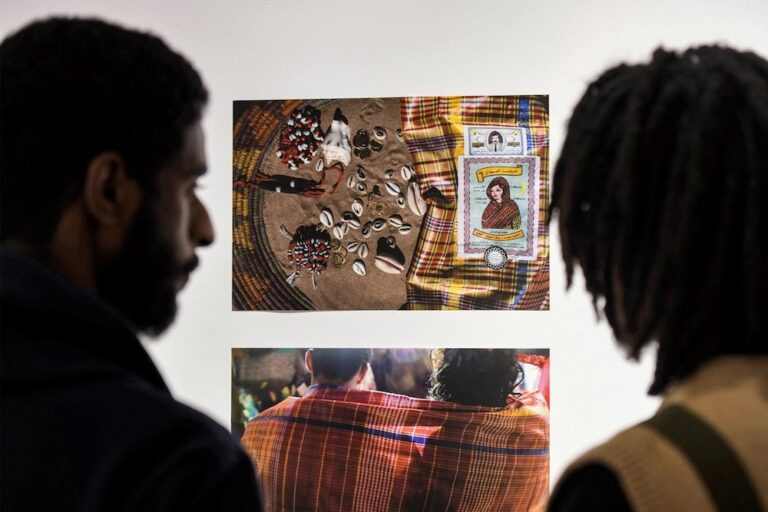In its Artist Alert report for October 2013, ARTICLE 19 highlights cases from Nigeria, Brazil, Iran, and North Korea, as well as other countries in which artists face persecution and harassment.
In its Artist Alert report for October 2013, ARTICLE 19 highlights cases from Nigeria, Brazil, Iran, and North Korea, among others.
Art, in any form, constitutes a key medium through which information and ideas are imparted and received. Artist Alert, launched by ARTICLE 19 in 2008, highlights cases of artists around the world whose right to freedom of expression has been curtailed and abused, and seeks to more effectively promote and defend freedom to create.
AFRICA
NIGERIA: FILMMAKERS PROTEST ‘DOUBLE-CENSORSHIP’
Filmmakers in Lagos, Nigeria protested on 30 August against what they have called “double-layered censorship” following the establishment of the Lagos State Film and Video Censorship Board, which will now be censoring and classifying films already cleared by the national censorship board. The Lagos authority said that the move was a result of complaints from citizens about the content and quality of some films broadcast in Lagos.
The President of the Association of Movie Producers, Zik Zulu Okafor, said this would pose financial strains on the work of independent filmmakers who would now have to pay their fees to the National Film and Video Censors Board as well as to the Lagos Censorship Board for their films to be shown in Lagos. They say they fear that other states could replicate this model and that filmmakers would have to go through several censorship boards for their films to be shown in the other 35 Nigerian states.
AMERICAS
Brazil: Police prevent screening of documentary
On 3 August, police officers in North East Amaralina, Salvador, prevented the screening of the documentary Menino Joel [Little Joel]. The film is about the death of a child during a police operation in 2010 in the same neighbourhood in which the documentary was due to be screened.
Armed police entered the local cinema to prevent the documentary from being screened and argued that the film “encouraged residents to be in opposition to the police”. The film was shown as part of a local initiative between the Cinemaloca group and the Amaralina Residents Association in order to promote debate about violence in the neighbourhood.
Cuba: Musician banned over political opinions
On 17 September, Cuban pianist, Robertico Carcassés, was banned from performing in public in Cuba because of his political opinions. Carcassés was performing along with a group of local musicians in a public concert in La Havana to mark the anniversary of the arrest in Miami of five Cuban intelligence agents known as the “Cuban Five”.
While performing the song “Cubanos por el mundo,” [Cubans in the world] Carcassés, started to improvise lyrics calling for the release of the prisoners and also called for presidential elections by direct vote, free access to information for all and an end to the U.S. embargo and “[Cuba’s] auto-embargo.”
The Cuban Music Institute, the government body that registers musicians and authorises concerts, suspended Carcassés from performing on the island “indefinitely”.
CUBA: ART INSTALLATION CENSORED BY FACEBOOK
On 30 August, Cuban artist, Erik Ravelo, was startled to find that Facebook had removed an image he had uploaded for his latest art installation, Los Intocables [The Untouchables]. The image was of a priest facing a wall and imitating a cross, with children being hung from crosses.
Facebook, which did not provide a reason for its decision to remove the image, also prevented the artist from uploading any of his other art work images for a further seven days. By 19 September, Facebook had removed Ravelo’s fan page in its entirety, informing him that his page “infringed their conditions of use” and had been “flagged for harmful content”.
USA: Publishers cancel book because of author’s sexuality
On 22 August, a publishing company cancelled the release of Woven, a young-fantasy novel because one of the male authors mentioned his boyfriend in the biography. The author concerned, Michael Jensen, was told to delete the line mentioning his sexuality in his biography, which reads: “He lives in Salt Lake City with his boyfriend and their four dogs” but he refused. The publisher said that allowing Jensen to be known as a gay man could damage its relationship with other church-affiliated publishers.
Jensen proposed to change the word “boyfriend” to “partner” in his bio blurb but the publisher refused. Woven was due to go to press on 1 August, and is currently looking for a new publisher.
USA: Lyrics censored at music video awards
The American music television channel, MTV, decided to censor lyrics during a performance by American singers Miley Cyrus and Robin Thicke being shown as part of the VMA awards. The network cut the line “dancing with molly”, a reference to the powdered form of the drug MDMA. The TV channel also censored American rapper Kanye West, who made reference to the popular drug in one of his songs.
ASIA PACIFIC
Japan: School board bans manga series
A school board in Japan decided on 26 August to prevent students from viewing Hadashi no Gen [Barefoot Gen], a 10-volume manga series depicting the aftermath of the atomic bomb in Hiroshima. Copies of the manga series were removed from all of its school libraries in the south-western city of Matsue.
The removal was due to the books’ images of graphic violence, although the series sought to explain the events of Hiroshima. The prohibition came after a citizen complained and challenged the content of the book saying that the manga series “depicts actions that were not committed by Japanese troops during the war”.
Malaysia: Authorities prevent heavy metal band performance
On 28 September the American heavy metal band, Lamb of God, was prevented from performing in Malaysia. Islamic officials refused the band a permit to perform, despite already having sold 1,500 tickets, because they deemed their work to be blasphemous.
The authorities claimed that the band’s music “could lead Muslims astray” because of the way it often combines excerpts from Islam’s holy book, the Koran, with heavy metal music. The band has expressed its frustration, believing that the government-run department has not studied the content and meaning of their songs with sufficient care.
North Korea: Comedian sent to labour camp over joke
On 9 August, North Korean comedian Lee Choon Hong, who was commissioned to entertain farm workers in the countryside, was sent to a labour camp after allegedly making a “sensitive comment” about the government. Although it is not clear what he actually said, it was reported that he was removed during his performance and immediately sent to Jikdong Youth Coal Mine in the city of Sunchon in South Pyongan province.
The comedian, who is well known for his comments about North Korean society, was also sent to labour camp in 2000 as a result of a joke he made about the government.
South Korea: Documentary movie pulled
South Korean documentary, Project Cheonan, was pulled from major cinemas by Megabox, the largest cinema chain, two days after its opening on 3 September. The chain cited security concerns after they received threatening phone calls, and had previously been threatened with defamation suits after screening the documentary the first time.
The film offers alternative explanations about the sinking of a South Korean warship named Cheonan, which claimed 46 lives in March 2010. South Korea officially concluded that a North Korean torpedo was the cause of the sinking, though North Korea denied any involvement. In the film, experts offer possible alternative causes for the ship’s sinking. Some speculate that the ship may have sunk after coming into contact with a mine leftover from the Korean War.
Europe & Central Asia
Germany: Writer refused entry into USA
On 30 September, Bulgarian-German writer, Ilija Trojanov, was denied entry to the USA for a second time. Trojanov, who had previously been denied a visa, was stopped from boarding a flight from Brazil to the USA after subsequently getting a visa with the support of an American university.
Earlier this year in July, the writer had co-written a letter with Juli Zeh to German Chancellor Angela Merkel, asking her to make a statement about the American National Security Agency’s surveillance program. It is thought that this letter most probably played a role in the US repeat decision to refuse Trojanov entry to the country. This is the most recent example in a long line of cases where writers have been banned from visiting the USA because they hold and have expressed particular political opinions.
GERMANY: ARTIST WINS NAZI SALUTE CASE
On 14 August, German artist, Jonathan Meese, was acquitted of charges relating to the use of the Nazi salute and swastika in his work. He was accused of violating laws which prohibit “the use of symbols of unconstitutional organisations”.
Meese argued that his intentions were to diminish the potency of the symbols, which he claimed to have used in a satirical manner, claiming that “doing this serves to increase civic enlightenment”. The judge agreed, deciding that Meese’s actions had not aimed to gain sympathy for the Nazi party, but to “promote art”.
In the meantime, Meese has been hired to produce the opera, Parsifal, at the world-famous Wagner Festival.
KAZAKHSTAN: POET REMAINS IN SOLITARY CONFINEMENT
On 5 August, calls were renewed for the Kazakh poet, Aron Atabek, to be released from prison. A letter was sent to the government by civil society organisations requesting his immediate release.
Atabek has been imprisoned in Kazakhstan since 2007 for writing a book that was critical of the president. Atabek was placed in solitary confinement for two years, and is due to join the rest of the prison population by the end of 2014. The UN Human Rights Committee and the UN Committee against Torture have stated that prolonged detention in solitary confinement may amount to torture.
Russia: Authorities seize paintings
On 26 August, Russian authorities seized paintings from the Museum of Power Gallery in St Petersburg because of what was deemed to be their “distinctively pornographic character”. One painting showed the Russian president, Vladimir Putin, in tight underclothes brushing the hair of Russian Prime Minister, Dmitry Medvedev, in even more revealing underclothes.
Russia has laws which protect politicians from “insults”. However, the gallery owner was given no explanation for the removal of the paintings.
Middle East & North Africa
Iran: Over 200 rock fans arrested at concert
On 16 August, police raided a concert of Dawn of Rage, a heavy metal band and arrested over 200 people without any explanation. Security officials also confiscated the mobile phones of concertgoers and forced them to strip naked for signs of ‘satanic’ symbols.
In 2007 authorities also raided an unauthorised concert that was considered ‘satanic’ and arrested over 200 people, who were deemed “Satan-worshipping instigators” by the prosecutor.
Lebanon: Play about censorship censored
On 28 August, the Lebanese Censorship Bureau censored a play about censorship. The play, Would It Pass Or Not? written by Lucien Bourjeily, aims to enlighten people about their rights to freedom of opinion and expression by exposing the censorship process in Lebanon and showing a working day in the Lebanese Censorship Bureau.
Bourjeily and his company staged the play on university campuses to invited audiences rather than in public theatres to avoid censorship attempts. During one performance, government officers disrupted the play, trying to break it up. On another occasion, Bourjeily was confronted by the Bureau’s general, who claimed that the play had “no artistic merit” and was “inaccurate and unacceptable”. He also deemed it offensive as it made fun of the censorship bureau.
TUNISIA: RAPPERS IMPRISONED FOR “INSULTING” WORK
On August 30, Tunisian rappers, Alaa Eddine Yaakoubi, (better known as Weld El 15) and Klay BBJ, were sentenced to a year and nine months imprisonment. The rappers were arrested at a festival for singing lyrics which “insult” the police.
Their lawyer, Ghazi Mrabet, confirmed that both his clients were beaten en route to the police station and that they had medical certificates which proved these injuries. A video uploaded to the internet showed Weld El 15 in hospital with several bruises on his face, neck and right arm. On camera, the rapper explained how police officers had beaten him with batons.
The two rappers were not initially informed of their trial, even though this is required by the code of criminal procedure. They only heard of their conviction on social media.



